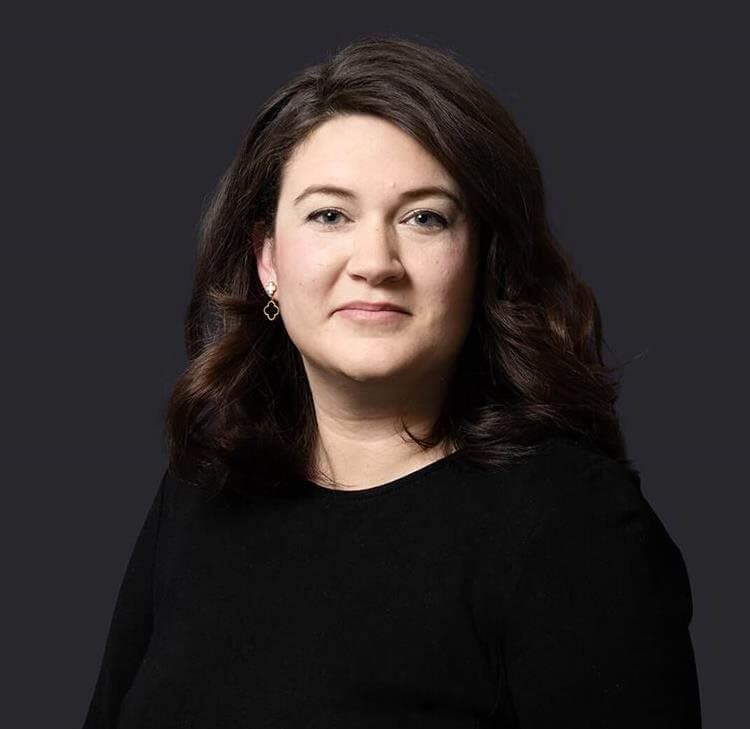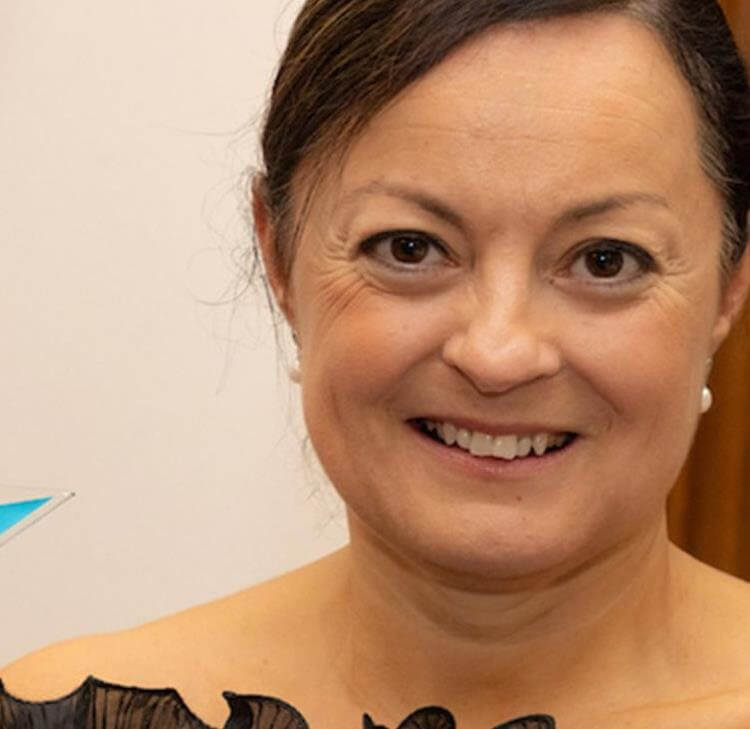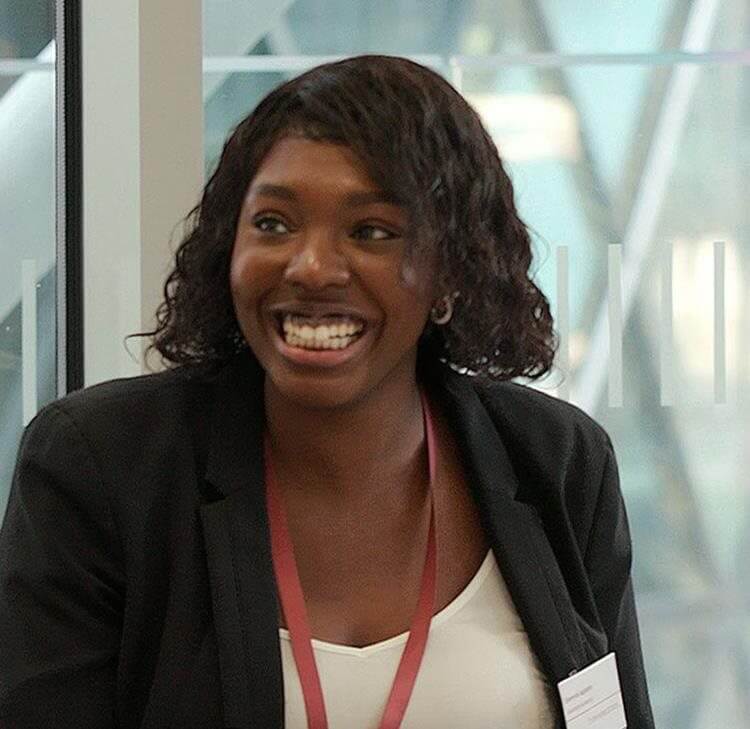Browne Jacobson’s team of in-house barristers represent clients in courts nationwide across a broad range of public and regulatory law, acting primarily in the fields of health, education and social work and on behalf of major insurers. Their work is often complex, lengthy and very high-profile, with cases often appearing in the news, echoing the firm’s clients in national public inquiries such as the Grenfell tower disaster and the Manchester arena tragedy.
We talked to Sherelle Appleby who joined Browne Jacobson in 2019 as an assistant advocate and who became the firm’s eighth pupil in September this year.
Tell us about the next step in your journey to becoming a barrister at Browne Jacobson and what this involves?
I’m really excited to be taking this next step in my career after spending three years as an assistant advocate with the firm, which is an excellent route into becoming a barrister as you get a lot of practical experience of the courts and handling cases. Pupillage is the final stage of training to become a barrister, and once I have completed the programme, I’ll be a qualified barrister. It’s the last hoop I need to jump through to achieve something I’ve always wanted to do!
The Pupillage is a 24-month programme at Browne Jacobson and is split into two phases. In the first six months I’ll be shadowing the barristers in the team and learning how to prepare a case for hearing and run a case. Then, the next 18 months are all about putting what I’ve learnt into practice and I’ll be attending hearings in courts and representing clients.
“I would always advocate for the Bar – I love it! If you are someone who enjoys public speaking – not always an easy thing to do – and you enjoy thinking on your feet, go for the Bar! It’s hard work, as is the solicitor route, but being in court is exciting. It’s a special kind of pressure – your witnesses could go in a number of directions, so you have to be ready to react and adapt.” Sherelle
I’ll be guided by my Pupil Supervisor, Ian Perkins, who will oversee my training during the programme, and I’ll also be able to draw on support from the whole team of barristers and work with them on instructions from across the firm.
What inspired you to become a barrister and how have you prepared for the pupillage?
I always knew I wanted to do something that involved public speaking and during sixth-form I set my heart on becoming a barrister. During my law degree I had a sandwich year working as a paralegal at a family law firm, and this cemented that I wanted to be a barrister rather than a solicitor. I really enjoyed preparing cases for court and appearing before judges to obtain orders for our clients - those were the days I enjoyed most. Once I’d finished my law degree, I completed the (then) Bar Professional Training Course (BPTC).
I saw the Assistant Advocate role advertised at Browne Jacobson in Birmingham and I was immediately drawn to it as it offered hands-on experience in advocacy and lots of variety in the types of cases you would handle. I started just before my call to the Bar, and the time has flown since. It’s been a great way to develop my advocacy skills.
What kinds of cases did you work on as an Assistant Advocate?
I’ve been lucky to work on a lot of weird and wonderful cases in that time and I’ve built a real passion for being in court. For example, a case that I acted in that meant a lot to me personally was a Teachers’ Regulatory Authority (TRA) case. It was a particularly difficult case involving a teacher who engaged in an inappropriate relationship with a student with special educational needs, after the police had decided not to prosecute the case.
Supporting the student and their mother through the hearing and giving evidence was a major part of my role. Giving evidence is not easy for anyone, but it was particularly challenging in these circumstances. Both the student and mother were very anxious about it, so helping them through the hearing process was very rewarding. The TRA panel ultimately accepted the witnesses account which led to the TRA making a prohibition order against the teacher. This case has really stuck with me and getting the outcome that we wanted meant a lot, because the mother finally was able to feel that something had been done and knew that it couldn’t happen again to another child. It was really powerful to see the impact my work had on that family and I feel very proud to have helped to reach that outcome.
Many people associate a pupillage with being attached to a Barristers’ Chambers – how does training in-house differ, and why did you choose to train with Browne Jacobson?
I wanted to stay on and train with Browne Jacobson because of the variety of the work and the hugely supportive team. You really feel that support when you’re in court and have an unexpected development in a hearing, and you can turn to one of your colleagues to get their perspective on how they handled a similar situation. We have a very active group chat to touch base with the team as we’re travelling around a lot of the time and working through the pandemic really brought us together.
Before joining Browne Jacobson, I’d always expected to be self-employed as I thought this was the only route available, but being in-house offers more security. The action over pay conditions taken by barristers this summer, which I sympathise with, has really brought this to the forefront for me. I think there can be a stigma around being in-house, because when students are studying and thinking about applying for pupillages, the Chambers route is so much better known – it’s the only image of barristers we ever see on TV for example. Until you hear about the in-house route, or meet someone in-house, you can have no idea what it’s all about. Based on my own positive experience, I’d encourage anyone who is interested in becoming a barrister to consider this route.
Why should readers consider training as a barrister?
I would always advocate for the Bar – I love it! If you are someone who enjoys public speaking – not always an easy thing to do – and you enjoy thinking on your feet, go for the Bar! It’s hard work, as is the solicitor route, but being in court is exciting. It’s a special kind of pressure – your witnesses could go in a number of directions, so you have to be ready to react and adapt.
What are you most looking forward to in your new role as a pupil barrister?
I’m most looking forward to learning from the other barristers in the team who all have different styles and how to manage cases across different areas of law. In time, I’ll develop my own style, drawing on what I will learn from my colleagues and I’m looking forward to putting it all into practice as a successful barrister.
How does being a barrister at Browne Jacobson fit with your professional goals and wider values?
For me, being a barrister is all about making a difference and at Browne Jacobson, you feel empowered to make that difference. The firm also encourages me to have a voice on the issues that matter and really listens, so I feel supported across my team, wider colleagues and by senior management. For example, if something is happening in the news that impacts me, I know that I can feel confident in speaking to a colleague about how I feel or join one of many support networks we have across the firm. I am an active member in the Browne Jacobson REACH (Race, Ethnicity and Cultural Heritage) community which formed after the murder of George Floyd and sparked the on-going conversations we now have regarding equality and social mobility throughout the firm. As part of our mentoring program, we support and encourage black university students with an interest in joining the legal profession. It is important to me that diversity at the Bar is increased, I am glad Browne Jacobson provides opportunities for me to drive this initiative forward.
Contact

Kara Shadbolt
Senior PR & Communication Manager
kara.shadbolt@brownejacobson.com
+44 (0)330 045 1111
Related expertise
You may be interested in...
On-Demand - Care Focus webinar series
Care Focus: Focus on regulatory and employment
On-Demand - Care Focus webinar series
Care Focus: Critical incident response - Criminal investigations
On-Demand - Care Focus webinar series
Care Focus webinar: The crucial first 48 hours
Online Event - Care Focus webinar series
Care Focus: Critical incident - Inquest
Online Event - Care Focus webinar series
Care Focus: Critical incident - Managing risks
Online Event - Care Focus webinar series
Care Focus: Critical incident - Reflection
On-Demand
Pupillage open evening
Press Release - Firm news
Legal pioneer clinches top honour: Browne Jacobson partner named Employed Barrister of the Year
Press Release - Firm news
Browne Jacobson's Fiona Butler shortlisted for Employed Bar Award
Press Release - Firm news
Browne Jacobson launches free job simulator to give aspiring barristers a taste of life in legal profession
Press Release
Browne Jacobson announces appointment of Barrister to its Cardiff office
Press Release - #BeingBrowneJacobson
Raising the Bar with Browne Jacobson
Legal Update
Advocacy in Action: Female Genital Mutilation Protection Orders (FGMPO)
Legal Update
Advocacy in Action: school places during a national pandemic
In this second Advocacy in Action update, we consider the issue of claims arising from school placements during Covid-19 lockdown.
Legal Update
Advocacy in Action: Inquests, suicide and self-harm
The Browne Jacobson team of barristers are celebrating their 10th anniversary in December 202 and will be reflecting on their experience at hearings before Courts and Tribunals nationwide to identify key issues and lessons for schools and education providers.
Opinion
Landlord and tenant inspections - getting the evidence right
In Rogerson v Bolsover District Council (2019) the Court of Appeal found against a local authority landlord pursuant to the Defective Premises Act 1972 following a finding of an inadequate inspection regime.
Legal Update
London Borough of Southwark and another v Transport for London - Supreme Court decision
Back in 2017 we wrote about the case of London Borough of Southwark and the City of London v Transport for London [2017] EWCA CIV 1220 that had just been heard in the Court of Appeal.
Legal Update
When the accused can't stand trial?
What happens when an accused cannot stand trial in criminal investigations? There are many situations whereby after a criminal investigation has started, an accused individual can no longer stand trial.













